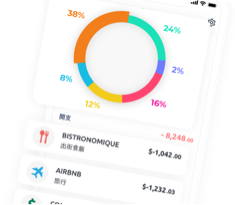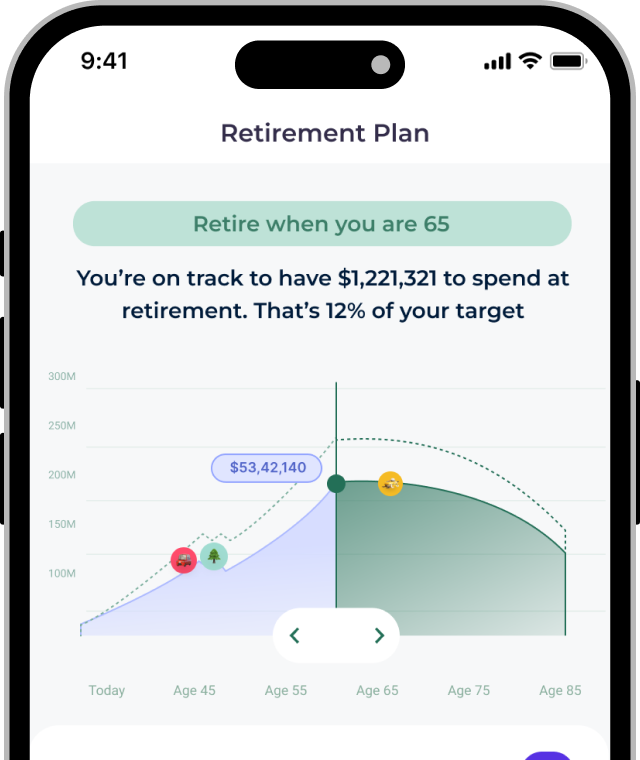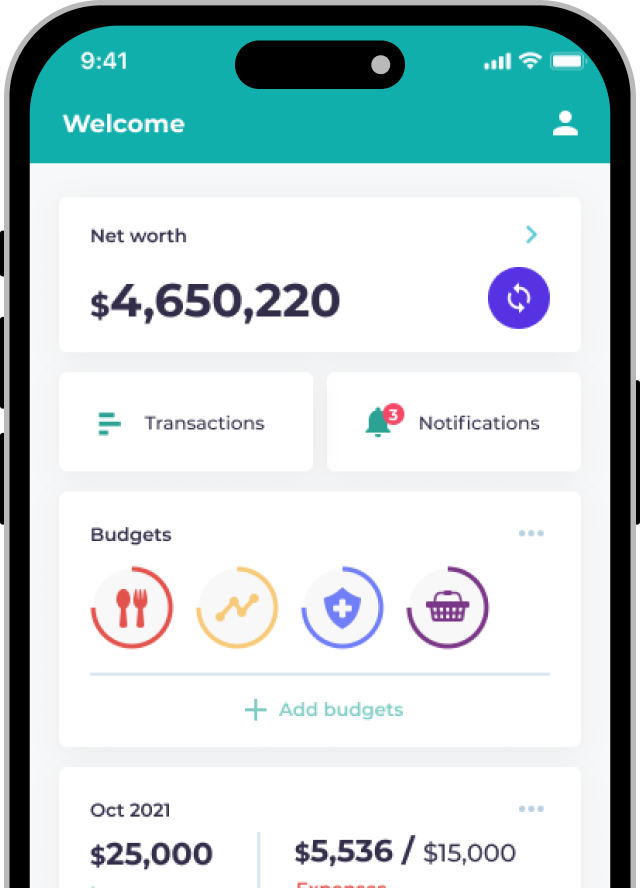Bitcoin had a strong performance in 2021, with its price reaching almost US$70,000 at one point. However, it dropped below US$50,000 in December and weakened further in 2022. As of March 2023, its price still lingers around US$20,000.
Despite the high volatility of cryptocurrency prices, which poses significant risks, many retail investors are still drawn to them. The rise of NFTs and the metaverse has made the cryptocurrency market even more lively. Many hope to make a fortune by investing in cryptocurrencies such as Bitcoin, Ethereum, and Dogecoin.
For novices investing in the cryptocurrency market for the first time, they may be frightened by unfamiliar jargon and trading procedures. In recent years, many online platforms have greatly simplified cryptocurrency trading modes. By comparing the fees charged by different cryptocurrency platforms, beginners can learn how to invest in Bitcoin, Ethereum, and other cryptocurrencies or virtual currencies.
Comparison of Online/Offline Trading Modes for Cryptocurrencies
There are numerous ways to trade Bitcoin online—investors can easily conduct transactions through the platform’s website or mobile app. Investors may also transfer cryptocurrencies through offline channels. When selecting a trading mode, various factors such as convenience, transaction security, transaction costs, and storage methods should be considered. The following are some commonly used trading methods in Hong Kong:
Buying Bitcoins through Spot Trading on Online Exchanges
The easiest way to purchase cryptocurrencies is through spot trading on platforms. These platforms, which declared themselves as “exchanges,” “currency exchange shops,” or “trading platforms,” are straightforward to use. Standard payment methods include Mastercard, Visa cards, and bank transfers, which may vary depending on the platform.
Crypto exchanges such as Binance support purchasing cryptocurrencies using credit or debit cards. The process for different platforms is relatively similar. After entering the Hong Kong or US dollar amount on the purchase section of the platform, the user will then see the amount of cryptocurrency they can purchase. After entering and confirming credit card information and transaction details, the user can complete the transaction, and the purchased cryptocurrencies generally appear in the account within minutes.
Using credit or debit cards to purchase Bitcoin is advantageous because it is convenient, fast, and secure. However, the transaction fee can be as high as 5%, and most credit cards do not offer cashback for buying cryptocurriencies.
Over-the-Counter (OTC) Trading through Online Crypto Exchanges
In addition to buying Bitcoin directly from trading platforms, many cryptocurrency exchanges provide users with OTC trading services, also known as “off-exchange trading,” “C2C,” or “peer-to-peer.” Binance is a popular platform offering this type of trading.
During an OTC trade, the trading platform acts as an intermediary, matching buyers and sellers. The process is similar to that of an online marketplace:
- Sellers list their cryptocurrencies for sale on the platform.
- Buyers contact sellers through the platform to purchase cryptocurrencies.
- Both parties agree on the trade volume, settlement currency, and transfer method.
- Before the buyer makes a payment, the platform freezes the seller’s cryptocurrencies on the exchanges.
- After the buyer completes payment, the seller confirms the trade with the platform, transferring the cryptocurrencies to the buyer’s account.
Since trading platforms conduct KYC on their customers and regulate their transactions, OTC trading can help reduce the risk of fraud. If disputes arise, the platform can assist with dispute resolution, although it cannot completely eliminate risks. OTC trading also incurs lower transaction costs than buying Bitcoins with a credit card.
When purchasing Bitcoins through P2P trading, the price is subject to negotiation between the two parties, and there may be a significant price differential. Many investors buy stablecoins like USDT through OTC trading due to their stable prices. Then, they can use USDT to trade other cryptocurrencies on the exchanges.
P2P Offline Trading of Cryptocurrencies
P2P offline trading is the most primitive way of buying and selling cryptocurrencies. It operates in the same way as trading any second-hand physical products. After the buyer and seller obtain contact information through online platforms, they directly meet and settle the transaction process through mutual agreement. For example, they can exchange a hard drive containing Bitcoin for cash face-to-face. This transaction method was once popular when online Bitcoin exchanges were not yet prevalent.
The advantage of buying cryptocurrencies through the P2P offline model is that it eliminates the need for intermediary platforms. However, the trading risk is higher as the buyer and seller do not know each other’s backgrounds. In Hong Kong, for example, there have been cases where people were robbed while conducting face-to-face Bitcoin transactions. When conducting P2P transactions, buyers and sellers must be careful and vigilant to prevent similar robbery or fraud cases from happening.
Buying Bitcoins with Cash Through a Bitcoin ATM
A Bitcoin ATM is not a traditional automated teller machine offered by banks. It is a self-service machine used to buy and sell popular cryptocurrencies such as Bitcoin, Ethereum, and Bitcoin Cash.
Buying Bitcoins through a Bitcoin ATM is simple and fast. Generally, all that is needed is to set up an account, deposit funds, and scan a QR code from a cryptocurrency wallet to complete the transaction within minutes. However, transaction fees are generally higher, and a price differential may exist.
Cryptocurrency Storage Methods: Cold Wallet vs Hot Wallet
Cryptocurrencies like Bitcoin are virtual assets that do not exist physically, and all Bitcoin transaction records are stored publicly and anonymously on the blockchain. Investors must possess their private keys to prove that they own the corresponding cryptocurrency on the blockchain and therefore control their assets.
Cryptocurrency wallets are mediums for storing private keys and are divided into “cold wallets” and “hot wallets.”
Cold Wallet: Offline Storage of Private Keys
A cold wallet is an offline wallet not connected to the internet. The most primitive method is to manually copy the private key onto paper, which is prone to errors or loss. Therefore, most cold wallets come in hard drives or USB thumb drives.
Popular cold wallet hardware suppliers include Trezor, Ledger, and KeepKey, with prices starting from several hundred dollars. These cold wallets are equipped with encryption functions, providing greater asset security.
Since cold wallets store private keys offline, the risk of hackers stealing private keys is significantly reduced. However, since cryptocurrency transactions are often conducted online, trading with cold wallets is relatively inconvenient.
Hot Wallet: Online Storage of Private Keys
A hot wallet, also known as an online wallet, is the opposite of a cold one. It is a cryptocurrency wallet stored online, accessible via mobile apps or websites, and allows investors to trade cryptocurrencies quickly.
While hot wallets are easy and convenient, they are also vulnerable to successful hacker attacks. Therefore, investors should avoid storing large amounts of cryptocurrency in a single hot wallet.
Storing Assets on an Exchange
Cryptocurrency exchanges generally provide asset custody services to users, a type of hot wallet. After users buy cryptocurrency through the platform, they do not possess the private key. However, the advantage is that it is incredibly convenient. Users do not need to manage their wallets and can log in to the platform to operate cryptocurrencies at any time, just like trading in a stock account.
Exchanges store customer assets using both cold and hot wallets. While exchanges take network security measures, it does not mean that there is no security risk, as everyone knows that exchanges hold large amounts of cryptocurrency and are easy targets for hackers. In addition, during significant market fluctuations, exchanges have temporarily suspended fund withdrawal services. Therefore, long-term investors should not store large cryptocurrency assets on exchanges.
Earning Saving Interest from Stablecoins
Earning interest on stablecoins is a stable investment strategy that does not require frequent trading and can provide up to 10% APY returns. Some cryptocurrency platforms support earning interest on stablecoins, with various options for payout frequency, such as monthly, weekly, daily, or even hourly. By utilizing stablecoin savings plans, investors can earn returns on idle funds before investing in other cryptocurrencies.
Some platforms support earning interest on cryptocurrencies like Bitcoin and Ethereum, but investors should be aware that the values of these cryptocurrencies are less stable than stablecoins pegged to the US dollar, which can result in the risk of earning interest but losing on the cryptocurrency’s value.
Another investment strategy for those who believe in the potential of Bitcoin or other cryptocurrencies is to invest in cryptocurrency-related stocks or ETFs on the US or Hong Kong stock market. This strategy offers the advantage of avoiding the risk of losing private keys and having a diversified portfolio to mitigate volatility in the cryptocurrency market.
However, investing in concept stocks or ETFs can result in tracking errors or premiums compared to direct investment in cryptocurrency. Also, stock markets have limited trading hours, unlike the 24/7 trading of cryptocurrencies, which can cause missed opportunities to buy or sell assets.
In October 2021, the first Bitcoin futures ETF, ProShares Bitcoin ETF (BITO), was listed on the US stock market with an expense ratio of 0.95%, providing investors with a simple way to invest in Bitcoin. There are also three virtual asset futures ETFs listed on the Hong Kong stock market, but they do not directly hold Bitcoin and instead invest in related futures contracts.
Compare Investment Account and Enjoy New Customer Promotions Today
FAQs About Investing in Bitcoin/Crypto
Bitcoin was first proposed by the pseudonymous figure “Satoshi Nakamoto” in 2008 in a whitepaper titled “Bitcoin: A Peer-to-Peer Electronic Cash System.” It utilizes decentralized and cryptographic technology to facilitate secure, transparent, anonymous, and tamper-proof transactions. Bitcoin was the first widely-known cryptocurrency, and since then, various other cryptocurrencies have emerged, including Ethereum, Dogecoin, Ripple, Litecoin, Tether, and Bitcoin Cash.
Bitcoin/crypto is a decentralized digital currency that operates on a peer-to-peer network, which means any central authority or government does not control it. Transactions are recorded on a public ledger called the blockchain, which allows for secure and transparent transactions.
Investing in Bitcoin/crypto can be risky due to its high volatility and lack of regulation. The value of Bitcoin/crypto can fluctuate rapidly and dramatically, resulting in significant gains or losses. Additionally, crypto exchanges and wallets can be vulnerable to hacks and other security breaches.
You can store your Bitcoin/crypto in a digital wallet on your computer or a hardware device such as a Ledger or Trezor. It is important to keep your wallet and private keys secure to prevent unauthorized access.
ome strategies for investing in Bitcoin/crypto include long-term holding, dollar-cost averaging, and active trading. It is important to do your own research and understand each strategy’s risks and potential rewards.






















